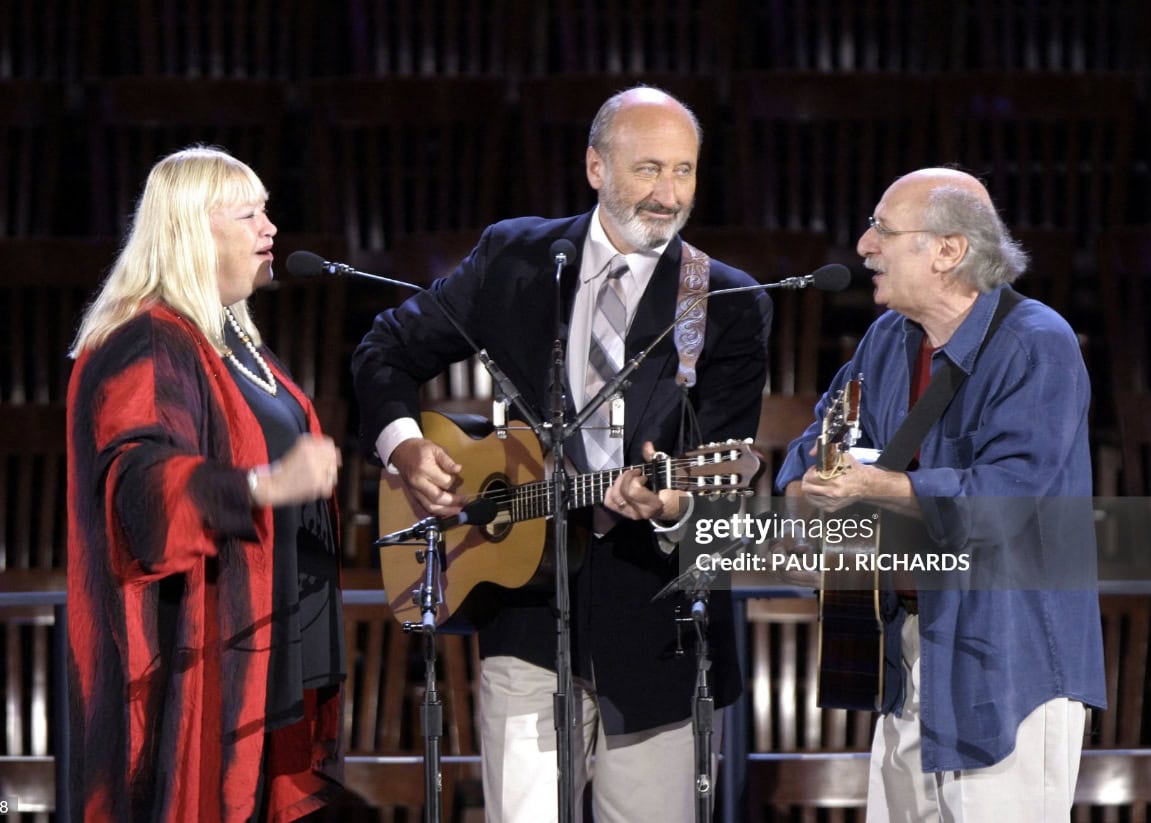
Peter, Paul and Mary – Blowing in the Wind
A timeless anthem of questioning and social commentary.
"Blowing in the Wind," performed by the folk-singing trio Peter, Paul and Mary, transcended its initial release to become a cornerstone of both folk music and the broader American cultural landscape. Released in 1962, this song, penned by Bob Dylan, captured the zeitgeist of a generation grappling with social injustices and political unrest. Its enduring popularity is a testament to its powerful message, delivered with a simple yet profoundly effective musical arrangement.
The song’s lyrics, deceptively simple in their structure, pose a series of rhetorical questions about the world around them. The repeated lines, focusing on issues of war, poverty, and discrimination, sparked immediate resonance with audiences eager to articulate their own anxieties and frustrations. This resonance extended far beyond the confines of folk music circles, reaching mainstream audiences as well. Dylan’s original version, characteristic of his folk-protest style, laid the groundwork for this significant cultural impact.
Peter, Paul and Mary’s interpretation of "Blowing in the Wind" added another layer to the song’s meaning and appeal. Their harmonies, known for their clarity and warmth, complemented the lyrics, making them even more poignant. The song’s accessibility, coupled with the group’s instantly recognizable vocal blend, contributed to its widespread popularity. The arrangement, while simple, strategically emphasized the melody and lyrics, showcasing the power of the questions themselves without elaborate instrumental flourishes. This approach allowed the song to capture emotion effectively.
The song’s impact was almost immediately palpable. "Blowing in the Wind" shot to the top of the charts, reaching number 2 on the Billboard Hot 100 chart in 1963. This success, coupled with the song’s subsequent and enduring popularity, solidified Peter, Paul and Mary’s place in popular music history. It cemented their group’s status as influential singers of the folk music era, catapulting them to the forefront of the burgeoning folk music scene. The song’s powerful message resonated across demographics and political divides.
The song’s impact extended beyond commercial success. Its lyrical questioning of social structures and political realities contributed significantly to the burgeoning counterculture movement of the 1960s. The song’s association with progressive ideals and peaceful activism cemented its place in history. "Blowing in the Wind" became a rallying cry for social change. People used the song and its poignant lyrics to express their concerns about the inequalities and wars of the time.
Significantly, and while not winning a coveted Grammy, "Blowing in the Wind" as performed by Peter, Paul and Mary played a crucial role in the group’s larger influence. Awards recognition wasn’t the sole measure of success in this case; the palpable and lasting impact felt by audiences far surpassed the absence of formal awards. Their performance resonated deeply with audiences as they brought Dylan’s song into prime time, introducing his often poetic and often profound questioning of the world to audiences well beyond the usual folk-music community. Though it didn’t result in a direct Grammy recognition, the lasting legacy and cultural significance of their rendition of the song was undeniable. The song’s enduring appeal, underscored by its role in the song’s overall cultural impact speaks to the power of a song’s message and artistic execution. This ensured the song’s place in popular consciousness for generations to come. More importantly, this demonstrates the importance of the song’s lyrical power.
"Blowing in the Wind" remains a powerful testament to the power of music as a tool for social commentary and change, forever etched in the annals of popular music history.
Video
Lyrics
updating